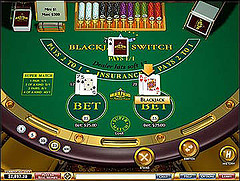 Ever since the “Unlawful Internet Gambling Enforcement Act” passed during the last session of Congress, Rep. Barney Frank has been pushing to repeal it. Good for him. It’s a silly law for reasons Radley Balko of Reason magazine pointed out during testimony at a hearing Rep. Frank hosted last Friday. The hearing was held by the House Financial Services Committee, which Rep. Frank chairs, and it was entitled: “Can Internet Gambling Be Effectively Regulated to Protect Consumers and the Payments System?” In his testimony, Balko, a former colleague of mine at the Cato Institute, made the moral case against the law:
Ever since the “Unlawful Internet Gambling Enforcement Act” passed during the last session of Congress, Rep. Barney Frank has been pushing to repeal it. Good for him. It’s a silly law for reasons Radley Balko of Reason magazine pointed out during testimony at a hearing Rep. Frank hosted last Friday. The hearing was held by the House Financial Services Committee, which Rep. Frank chairs, and it was entitled: “Can Internet Gambling Be Effectively Regulated to Protect Consumers and the Payments System?” In his testimony, Balko, a former colleague of mine at the Cato Institute, made the moral case against the law:
What Americans do in their own homes with their own money on their own time is none of the federal government’s business. Take online poker, by far the most popular form of online gambling. Poker has enjoyed a surge in popularity over the last several years. The game is about as mainstream and uniquely American as baseball. Poker evolved from similar card games in the early 1800s, then flourished in popularity on Mississippi’s riverboats, winning over such iconic American aficionados as Mark Twain.
Today, most daily newspapers have a poker column, including the New York Times. The game saturates cable television. Until recently, even several of the Supreme Court justices held a monthly poker game. Online poker is merely a new evolution of the game, similar to the way Civil War poker games introduced the straight, and gave us variations like draw and stud poker. The Internet merely removes the geographic barrier preventing those who love the game from finding opponents of similar skill who are willing to wager similar amounts of money.
I have to admit that I’m terribly biased in reviewing Radley’s testimony, not only because I know and like him, but because I’ve been a poker fanatic since my grandmother and aunt taught me various card games as a young boy in the mid-70s. Hell, I sometimes think I learned basic math from a deck of cards! Everyone I knew played.
But these days, as Radley suggests, it seems like everybody is playing. And it’s probably also true that many people are waging when they do play. And what’s wrong with that? As Radley argues:
No one is hurt when two or more consenting adults sit down for a game of poker, be it online or in person. Why any of this should be of concern to the federal government is rather perplexing. I respect the fact that many Americans—and many members of Congress—may have moral objections to gambling, online or otherwise. To them, I’d say, simply, “don’t gamble, then.”
[…]
Yes, it’s possible a parent could bet away their family’s savings, or their child’s education fund in an online poker game. They could also fritter that money away on eBay. Or on booze. Or fancy cars and exotic travel. These are all personal decisions, of course. And if a free society means anything, it means we should have the freedom to make bad choices, in addition to good ones. The ban on Internet gambling punishes the millions of Americans who were wagering online responsibly due to anecdotal evidence of a few who may do so irresponsibly. It’s an affront to personal responsibility, and symptomatic of a Nanny Statist government that treats its citizens like children. A government based on the principle of liberty doesn’t police the personal lives of its citizens for bad habits, at any level, much less at the federal level.
Amen, brother. But, unfortunately, logic like this doesn’t get us very far with the nannies in both parties in Congress who want to regulate virtually every aspect of our lives, especially when they think it’s “for the children.” Thus, I doubt Rep. Frank will find many allies in his fight to overturn this absurd, anti-freedom, anti-personal responsibility, anti-American legislation.
Incidentally, another friend of mine, Jeff Schmidt, also testified at the hearing. Jeff is an expert on identity authentication and age verification and is the CEO of a firm called Authis. Jeff recently participated in a Capitol Hill event I hosted entitled “Age Verification for Social Networking Sites: Is it Possible? Is it Desirable?” Many of the points he made at that event about the complexities of age verification were repeated at the hearing on Friday.
Jeff argued that:
it is critical to understand that age verification and determination of geographical location simply cannot be done reliably over The Internet. As no security measure is infallible, good security practitioners always consider a-priori what happens in the inevitable situations when security measures fail. I appear here today to discuss the factors that contribute to the unreliability of these particular security measures. The facts are that these two particular security measures are inherently unreliable, can be trivially circumvented, and will fail at high rates. This reality must be taken into account when considering this proposed legislation.

 The Technology Liberation Front is the tech policy blog dedicated to keeping politicians' hands off the 'net and everything else related to technology.
The Technology Liberation Front is the tech policy blog dedicated to keeping politicians' hands off the 'net and everything else related to technology.